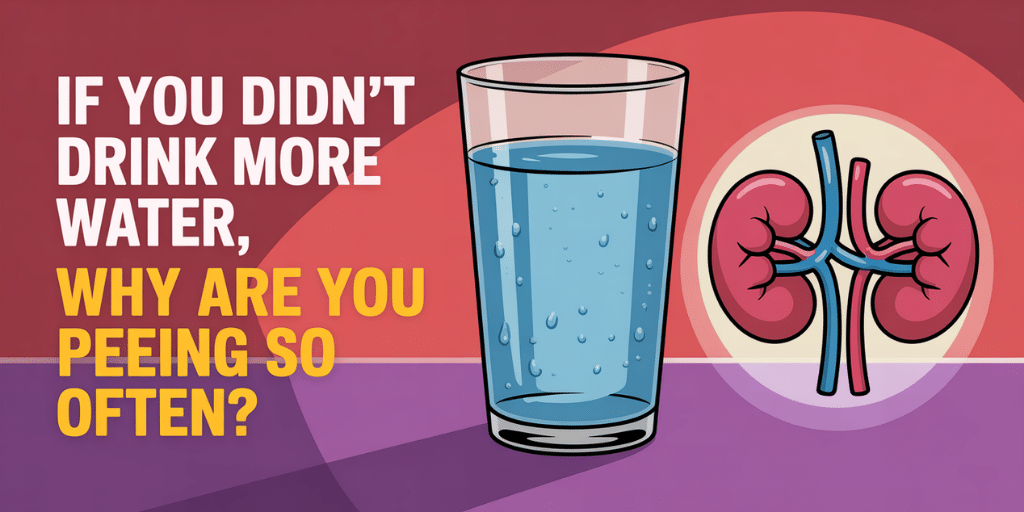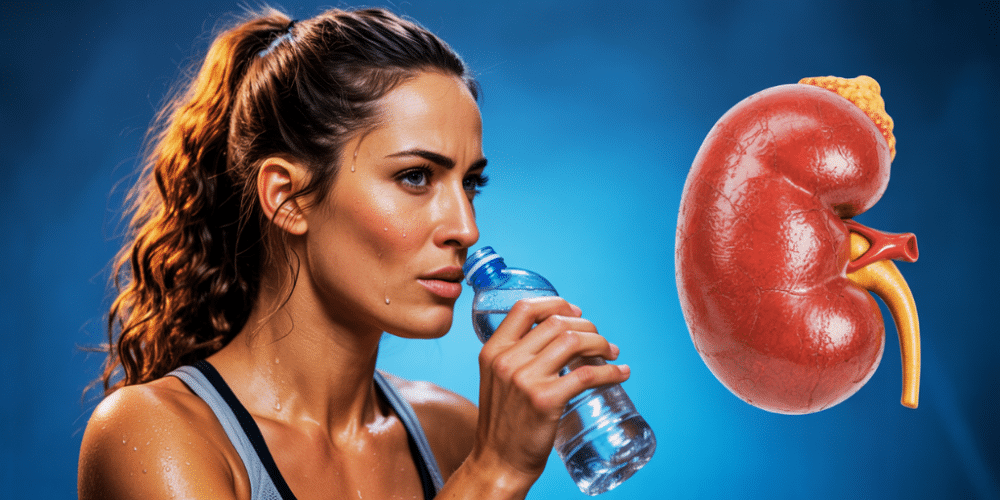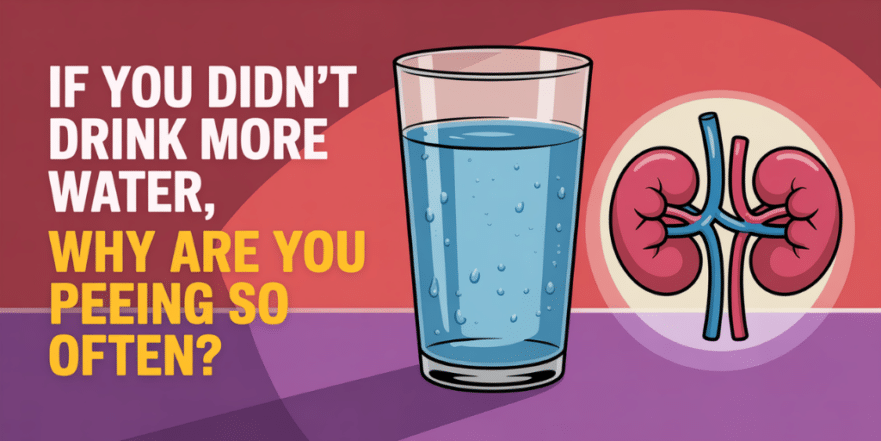
Have you ever chugged a big glass of water, felt like you emptied out at the bathroom, only to find yourself needing to go again an hour later, even if you haven’t had another sip? It’s a common experience, and it makes you wonder where all that extra pee is coming from. Did your bladder just magically create more water? Nope, and today we’re going to break down exactly what’s happening inside your body when this occurs. Understanding this can help you hydrate smarter, protect your kidneys, and even cut down on those annoying nighttime bathroom trips.
So, let’s start with the basics. When you drink water, it doesn’t just zip straight from your mouth to your bladder. First, it has to go through your stomach and intestines. The water needs to be absorbed through your gut lining and into your bloodstream. This absorption process isn’t instant; it’s gradual. Slowly, that water circulates through your blood vessels, feeding your cells and helping to flush out waste. Eventually, it makes its way to your kidneys, where it’s filtered and turned into urine.
Here’s where many people get it wrong: Your kidneys can only filter so much fluid per hour. They aren’t like a faucet that can handle a flood. Think of them more like a slow, steady coffee filter. When you drink a large amount of water quickly, like chugging 16 to 20 ounces at once, only a portion of that can be filtered right away. So, you go to the bathroom once, but the rest of that water is still hanging out in your bloodstream or in the fluid spaces around your cells. Your kidneys then catch up over the next 30 to 90 minutes. That second trip to the bathroom isn’t from new water; it’s just the water you already drank that’s finally being processed. The more you drink at once, the more likely this delayed effect is.
This can also happen overnight. If you drink a glass or two of water close to bedtime, say 8 to 16 ounces, some of that fluid might not be fully filtered until you’re already asleep. That’s why you might wake up at 2 or 3 AM needing to pee again. It’s your body finishing the job from earlier.
Understanding Kidney Filtration

To get a bit more scientific, your kidneys filter your blood through tiny structures called glomeruli. These little filters remove extra water, salts, and waste products, which then go to your bladder as urine. This whole filtration process is managed by hormones, like ADH, which stands for anti-diuretic hormone. This hormone essentially tells your kidneys whether to hold onto water or release it, depending on what your body needs. So, staying hydrated isn’t just about how much water you drink; it’s about how your body decides to manage that fluid intake. This explains why two people can drink the same amount of water but have very different bathroom schedules.
The Role of Electrolytes
Here’s something else really important: When you chug water, especially quickly, your body might treat it as an excess and push it out faster. This is especially true if your body is lacking electrolytes. You might pee it all out and still feel thirsty because your cells never actually got fully hydrated. The key is absorption, not just intake.
So, what does adding electrolytes to your water mean? It means including minerals like sodium, potassium, magnesium, or calcium – the things your cells need to actually hold onto water. These minerals have electrical charges that help pull water into your cells, rather than letting it just rush through your system. If you drink a lot of plain water without these minerals, you can dilute your body’s mineral balance and still feel dehydrated. That’s why athletes, and even everyday people, sometimes add a pinch of sea salt to their water, a squeeze of lemon, or use an electrolyte powder. You don’t need much – just a pinch in an 8-ounce glass can significantly improve water absorption, reduce unnecessary urination, and help you feel more energized.
It’s not always about drinking more; it’s about how much your body can actually use.
Smart Hydration Strategies
How can you use this knowledge to hydrate better? Here are some practical tips:
- Sip Slowly: Instead of chugging large amounts of water at once, try sipping slowly throughout the day. Aim for about 4 to 8 ounces at a time, spaced out every hour or two. This gives your body a better chance to absorb the water and reduces that cycle of delayed urination.
- Add Electrolytes: Consider adding electrolytes to your water, particularly sodium and potassium. This helps the water stay in your system longer. A pinch of sea salt and a bit of lemon can go a long way.
- Timing is Key: Stop drinking water at least one to two hours before bed if you want to reduce nighttime bathroom trips. If you’re thirsty late at night, sip a few ounces, but avoid drinking a full cup or two.
Remember, even if you pee right before bed, your kidneys might still be processing hydration you drank earlier. Your body is working on a delay, balancing and protecting itself.
Connecting the Dots
Urination isn’t just about drinking water; it’s a complex system involving timing, hormone signals, kidney function, and even your activity level. So, the next time you find yourself asking why you’re still peeing even though you haven’t had more water, you now know your body is just catching up. Hydration is a system, and understanding how it works is one of the smartest things you can do for your energy, focus, and long-term health. It’s not just what you put into your body, but how your body uses it. Stay hydrated the smart way!
Source: Dr. Mandell

